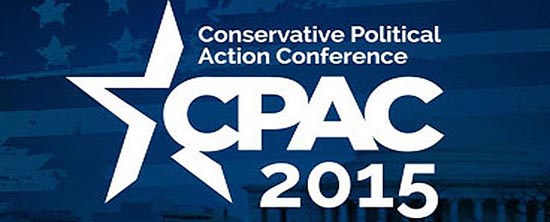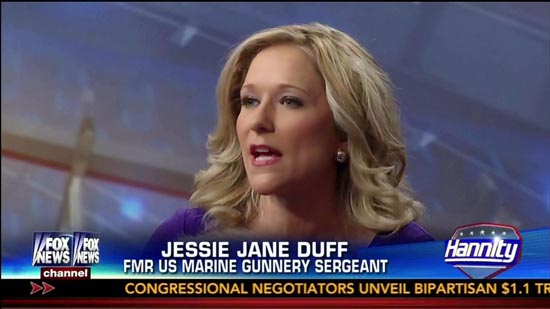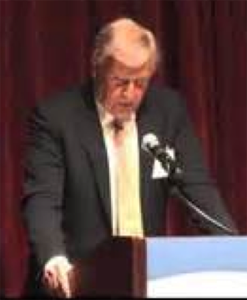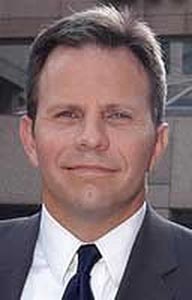CPAC

It is still colder than crap and the snow stubbornly clings to the parking lot outside my dining room window. I was thinking about what a hoot it was yesterday, over at the Conservative Political Action Conference….well, I am still reeling from the experience.
I would never, on my best day, have gone to a political convention. I had my fill of the carnival when I worked on the Hill in the mid-1990s, and have come gradually to the opinion that there are no groups of my fellow citizens with whom I willingly will associate. In fact, walking across the broad asphalt of the outer parking lot of the Gaylord National Harbor Hotel in the biting wind under blindingly bright skies, I thought about what a tremendous target this gathering was.
Still, my pal who had been scheduled to appear on the panel was snowed-in down in Norfolk, and he needed a replacement, and I am one of the solid “B-list” utility players who could meet the need.
I shrugged my shoulders under my three-piece suit, straightened by bow tie and walked in through the big glass doors. The very idea of CPAC makes a lot of people crazy here in this progressive enclave on the Potomac. It was founded in 1973 by the American Conservative Union and Young Americans for Freedom as a tentative counter-weight to the anti-Vietnam tidal wave of leftist outrage over the War.
Over the years, CPAC has grown to become a throng of thousands of attendees, with about half of them college-aged, and of a libertarian bent.
The interior of the hotel-cum-convention center was jammed with young people. Initial impressions? Kids with devices. It was impossible to move through the crowd as oblivious communicators could not look up to see what was in their way, or halted moved movement abruptly to insert an emoticon into an vital text message.
Many were wearing red t-shirts flacking Ron Paul, and I saw some for Jeb Bush as well. Jeb seemed to have had the better lapel decals, but the Libertarians were also flooding the zone. I accepted literature from young people standing strategically in the busiest portion of the hall, across from the Breitbart pavilion. A lot of the talk radio folks also had booths and were broadcasting live from the event.
I looked with growing desperation at the information kiosks scattered through the second deck of the hotel. The venue for the panel discussion of national security was not listed- there were six break-out sessions scheduled for two o’clock, but the specific rooms were not identified.
I was glad I was there early. Passing the large auditorium, I looked in to see former Senator Rick Santorum addressing the packed hall. I didn’t stop. Around the corner from the main hall I successfully found the breakout rooms, but the only people around were the IT gurus setting things up.
I checked my smart phone for the time- it is quite liberating to be freed from the burden of a watch, and sent a note to my contact pleading for information. I was also apprehensive that security would call me out for not being badged. I had missed lunch, and decided that someone would be around as we got closer to show time, and walked back out through the main conference area.
Along the way, I passed Morning Joe Scarborough, former UN Ambassador Josh Bolton, Former Congressman Alan West and a host of people who looked vaguely familiar. The crowd was overwhelmingly white, as you might expect, and many of the ladies were dressed to the nines. This is clearly a place to see and be seen.
A tuna salad wrap and a cup of coffee settled my nerves sufficiently to wander back up to the break-out rooms, and interacted with my contact, Tony Shaffer, and met Herb London and his lovely wife Victorian before being introduced to Jessie Jane Duff, who is the best looking Gunnery Sergeant I have ever seen. I was bold enough to say so, and I was a bit apprehensive, but Jesse is old school, and she smiled, taking no offense.

She got out at twenty, had the usual multiple overseas deployments and exercises, and DESERT STORM and the Iraq/Afghanistan wars.
I think I have seen her on Fox News, and she is locked and loaded on veteran’s health issues, particularly the care afforded to the increasing number of women vets. A very poised lady, who could have used her Command Voice, but instead got a lavaliere microphone to moderate the panel. She kept us on track and on theme.

Dr. Herbert I. London is president of the London Center for Policy Research and senior fellow at the Manhattan Institute. He is an approachable academic of a right wing bent, unusual these days. He was there with his wife, Vicky, and she was as nice as he was. Herb’s longest gig was in the creation and management of the Gallatin School of Individualized Study in 1972, where he served until 1992. The core theme of the curriculum is the study of the study Western canon of the “great books” and classic texts.
These days, Dr. London is a widely published social critic and author whose work has appeared in every major newspaper and journal in the country. He was affable, approachable and a grand guy.

Lt Col Tony Shaffer, USA-Ret., is a bundle of energy and a force of nature. He wears the Bronze Star among many other awards, and is an energetic speaker and analyst of what passes for strategic though in today’s DoD. I like his background- I had a role in the funding and oversight (slight though it was) of one of his operational intelligence organizations and respect his service immensely.
The room filled with people interested in the National Defense Strategy, which we probably ought to have, given what is going on these days, and we had a quick huddle on what was going to be said, who was going to say it, and how.
Jesse was going to kick things off, and then to my growing alarm, we would each have a five-seven minute introductory address to frame our remarks. It occurred to me that I hadn’t worked anything out, but that hasn’t stopped me in the past, so decided to go with the energy in the room.
With crisp military precision, Jesse kicked things off, and introduced us to the crowd. Herb took the edge off my jitters by addressing the plain facts- we don’t have an effective DoD because we don’t have a strategy. It is hard to make smart decisions if you don’t know where you are going.
He wrapped up the summation and handed the microphone over to me, and I recounted the budget cycles that attended the single cohesive issue in my almost thirty years in uniform: the Islamic Republic of Iran.
I turned the mike over to Tony, who had a PowerPoint presentation- one key slide summed it up nicely:
Take-Aways:
Basic foundations of National Security structure outmoded and contains “layers of inefficiency”
– National Security Act of 1947: created to fight and win the Cold War – an expensive legacy
– Goldwater-Nichols aka the DoD Reorganization Act of 1986: sweeping changes of command structure
– GWOT: additions to the national security system bureaucracy without any streamlining
– DHS: completely useless and adding complexity without added value
– Strategy and Budget Key : Must establish an EFFECTIVE defense, not an EXPENSIVE defense
Must define 21st Century Threats and Reform National Security to Meet and Defeat Them
– Technology: good and bad additions to strategic thinking; disruptive and yet decisive
– Space and Cyber Space – the New Frontiers that must be mastered
– Energy (all energy is “green”): Its about the use of energy and availability and cost not about Al Gore
– The Usual Suspects”: combination of Special and Conventional Military Forces still required
– Warrior Ethos and Political Will
Measures of Performance versus Measures of Effectiveness –Failing to achieve victory is OK as long as you follow the process – must return to wise warriors with will to win
Politically Correct thinking – numbing and hiding the existential and nascent threat
Tony turned it back to Jesse, and we then all got a shot at a comment on the framing structure. I snuck a look on my phone to check the time, and Jesse had managed the first hour effectively. She then advanced on the crowd, and took a couple long questions, including one that included the observation from a man with Marty Feldman eyes who had a great point. In every generation, the DoD has to confront a Black Swan sort of event for which it is chronically challenged to address effectively. Korea was one; counter-insurgency and a significant political war fought not in Vietnam but in the streets of America, the rise of radical Islam and the events that followed 9/11.
One young man rose to say that he lived in lower Manhattan when the Trade Center was attacked- near Building 7- and that perhaps we should remember that attempting to intimidate the Islamists was not the proper strategy.
I got the mike and pounced on the opportunity- “I don’t want to intimidate them. I want to kill them… Soon.”
Herb followed with the list of the outrages that went before the Very Bad Day in 2001: the East African Embassy bombings, the USS Cole, the first attempt on the Trade Center and the Beirut Barracks and Embassy bombings. We were not the bad guys in this mess.
Jesse announced that she pleased at the nice turnout, and the doors in the back of the room popped open and the throng from outside pressed in, eager to hear the next session on Fracking. It was a chaotic end to a well-organized panel, and by the time I realized what was going on, I found myself back in the corridor, talking to a journalist named Sidney Powell about the weaponization of the Department of Justice. She had written a book called “”licensed to Lie: Exposing Corruption in the Department of Justice.”
Someone handed me a poster of Rand Paul, suitable for taping up in my window, should I desire to do something like that, and a flier for the New England Freedom Conference in March. Apparently the Conservative Union is taking CPAC on the road.
Tony had been looking at his smart phone and texting during the presentation- he told me he was going to be on the Neil Cavuto show on Fox at four, he said, and it was going to be tight getting there. I heard him speaking on the satellite radio as I struggled to get back across the Woodrow Wilson Bridge. I have had a brush with national media in the past- my fifteen minutes of fame as a Congressional escort officer- but to see it all in motion in one place was a real treat.
The number of young people who are interested in the process was encouraging, and the energy was palpable. I still think I am going to avoid crowds in the future.
Copyright 2015 Vic Socotra
www.vicsocotra.com
Twitter: @jayare303
